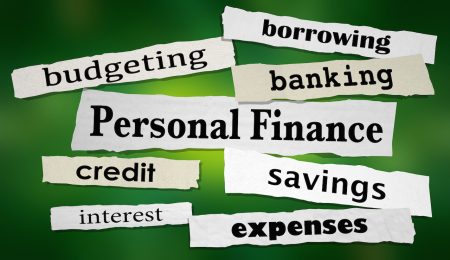*All information included in this article was current on its publication date and is subject to change.
Because business credit cards don’t require collateral and are easy to use and apply for, they’re a very common way for small businesses to secure a boost of funding. If you’ve ever applied for a personal credit card, you know you need to input your Social Security number (SSN), a unique 9-digit number that identifies you as an individual with the United States government, including the Internal Revenue Service.
For small business owners, there are other ways to identify yourself and your business when applying for credit cards—most commonly, businesses have an Employer Identification Number or EIN. You can apply for some corporate business credit cards using an EIN only.
Types of EIN-Only Business Credit Cards
Corporate Business Credit Cards
These business credit cards place the responsibility on your business for credit card debt, reducing or eliminating the need for personal guarantee. Most corporate business credit cards require a minimum account balance to qualify, although the minimum varies based on providers.
Corporate Fuel Cards
Popular with freight or trucking companies in particular, gas credit cards offer discounts and travel rewards, making them ideal for companies that anticipate a lot of travel for employees as a way to control costs and increase benefits.
Store Credit Cards
Another option for companies is a store credit card, particularly if you use a vendor for a bulk of business purchases. This could be for equipment, tools, technology, etc. A store credit card for a business does not come with a personal liability requirements, making it ideal to shop with a vendor you already use and reap rewards for your business.
EIN-only Corporate Business Credit Cards
In general, it’s rare for individuals to apply for a credit card without providing their Social Security Number (SSN), even if they have an Employer Identification Number (EIN). This is because most credit card companies require a personal guarantee, which necessitates an SSN.
However, some business credit cards only require an EIN. These are largely corporate cards created for businesses with large revenue streams, where approval is based more on your company’s financials rather than your personal credit history.
If your business qualifies, here are some options from Stripe, Brex, and Ramp.
Stripe Corporate Card
This card is only available to current Stripe users who have received an invitation. The credit limit is based on the business’s payment processing and bank history. The card comes equipped with custom spend controls, real-time expense reporting, and integrations with Quickbooks and Expensify. Additionally, it offers 1.5% cash back on every business purchase.
Brex Corporate Card
The Brex Corporate Card is designed for startups, e-commerce, and tech companies. It offers higher credit limits, rewards on key business spending categories, and streamlined expense management tools. It doesn’t require a personal guarantee or credit check and offers up to 7x points for cash back or credits, depending on the expense type.
Ramp Corporate Card
Ramp offers a charge card for small businesses with unlimited 1.5% cash back. Applying requires no personal credit check or personal guarantee. The card comes with a dashboard for managing expenses and integrates with major accounting software. Ramp will accept applications from any incorporated business in the U.S. with at least $75,000 in a U.S. business bank account.
EIN-only Business Fuel Cards
Fuel cards are another option for companies with large fleets of trucks or equipment, like the transportation and trucking industry.
AtoB
AtoB’s fleet fuel card is accepted at 99% of gas stations nationwide and can be used for expenses beyond fuel such as repairs or road tolls. The card comes with an average fuel discount of 46¢ per gallon on truck diesel. Monthly card fees start at $15. While you only need an EIN to apply, the card will help you build business credit.
The Application Process for EIN only Business Credit Cards
1. Obtain Your EIN
If you don’t already have one, getting an EIN is a straightforward process if you meet the IRS requirements. You will request your EIN from the IRS. The request process is free, and you can either obtain your EIN through the IRS online request form, or by mail.
2. Choose an EIN-only Business Credit Card to Apply For
Once you have your EIN, you can look for card issuers that will approve you with an EIN only. We’ve listed out a few options above.
3. Apply for a business card with EIN
Once you have selected a card to apply for, you’ll start the application process much the same way as you would when applying for a business credit card. There are some things to keep in mind. In most cases, your company will need to be registered as a limited-liability corporation (LLC), a partnership, or a corporation.
You will also need to include other information about your business, such as:
- Business Name
- Corporate Structure
- Contact Information
- Size of Business
- Current and Projected Revenues
- Date of Registration
The speed of approval depends on the company, with some approvals happening instantly, and some requiring a few additional days.
How to Build Credit with an EIN
Since using an EIN to apply for a business credit card means your company needs to demonstrate creditworthiness, here are some tips on building your company’s credit.
Obtain a D-U-N-S Number
Like Experian, Equifax, and TransUnion track your personal credit history, the Data Universal Numbering System (D-U-N-S) number tracks your business credit with business credit bureaus. You can get a D-U-N-S number from Dun & Bradstreet.
Apply for and Get a Business Credit Card
Once you have a business credit card, you can set about handling this credit line responsibly to boost your credit history. Keeping the credit utilization healthy, along with regular payment history will help you build a strong business credit profile year over year.
Monitor Your Credit Reports
Make a habit to regularly request copies of personal and business credit reports from the respective bureaus. At minimum, you’ll want to check at least once a year. This can help you identify any inaccuracies and make sure your credit is in good health.
Alternatives to EIN-Only Business Credit Cards
If you’re looking for an alternative to a corporate card, or business credit card using only your EIN, the following business credit cards will require a social security number to apply.
Capital One Spark 2% Cash Plus
The Capital One Spark 2% Cash Plus is a straightforward option with 2% cash back on everything you spend. This is a charge card, so the full balance must be paid back in full each month. There is a $150 annual fee that will be refunded if you spend $150,000 or more each year.
Chase Ink Business Cash Credit Card
Featuring no annual fee, the Chase Ink Business Cash Credit Card is a popular option because of its competitive rates of 18.24% to 24.24%* and $750 bonus cash back.
Capital on Tap
Capital on Tap offers up to a $50K credit limit with unlimited 1.5% cash back and no annual fee. They review your credit history but use a soft pull that won’t impact your credit.
Why is a social security number usually required for business credit cards?
In most cases, you’ll have to provide an SSN on a business credit card application—even if you provide an EIN. Because credit cards are unsecured, credit card companies want to ensure someone is liable for the card’s debt, even if a business is dissolved. This personal guarantee is a layer of security for the credit card issuer.
Compare financing options with Lendio.
Lendio simplifies the process of finding the right funding option for your business. Our platform allows you to compare financing options from over 75 lenders, each with unique funding options and requirements. Compare options.
Read the full article here









